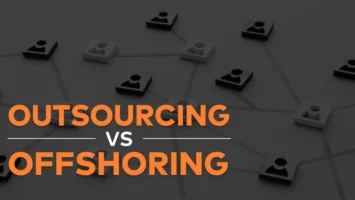Benefits of using WordPress

WordPress is a powerful and versatile content management system that has revolutionized the way we create, manage, and publish content online. With its easy-to-use interface, intuitive design, and powerful features, it has become the go-to choice for individuals, businesses, and organizations of all sizes and industries.
Flexibility
One of the biggest benefits of WordPress is its flexibility. Whether you’re creating a simple blog, an e-commerce site, or a complex business website, WordPress can handle it all. With thousands of available plugins and themes, you can easily customize your site to suit your needs, and with its open-source nature, you’re free to add or modify any code you want.
Ease of use
Another major benefit of WordPress is its ease of use. Even if you don’t have any coding or technical skills, you can still easily create and manage a professional-looking website with WordPress. The platform’s user-friendly dashboard makes it easy to add and edit content, manage media files, and manage users and permissions. Plus, with the vast array of tutorials, guides, and documentation available online, you can find answers to any questions you may have.
Features
In addition to its ease of use, WordPress also boasts a wide range of built-in features, including:
- SEO optimization: WordPress includes several built-in SEO tools and plugins to help you optimize your site for search engines. This includes the ability to customize your site’s title and meta tags, create custom permalinks, and create sitemaps and XML feeds.
- Media management: WordPress makes it easy to upload and manage images, videos, and other media files on your site. With the built-in media library, you can easily organize and manage your files, and even insert them into your posts and pages with just a few clicks.
- User management: WordPress allows you to manage multiple users and assign different roles and permissions to each one. This makes it easy to manage a team of authors, editors, and administrators, and also allows you to control who has access to different areas of your site.
- E-commerce integration: WordPress can be easily integrated with e-commerce platforms like WooCommerce, making it a great choice for creating an online store. You can easily add products, manage orders, and process payments all from the same platform.
- Multilingual support: WordPress can be easily translated into any language, which makes it a great choice for creating multilingual websites. Plus, with the built-in translation tools, it’s easy to translate your content for a global audience.
WordPress blocks
In WordPress, blocks are a new feature that allows users to create and edit content in a more visual and flexible way. With blocks, users can insert, arrange, and customize different types of content, such as text, images, videos, and other media, directly within the editor.
Some of the key benefits of using blocks in WordPress include:
- Improved usability: Blocks make it easier for users to create and edit content, as they don’t need to know HTML or CSS to format their content.
- Greater flexibility: Blocks allow users to insert, arrange, and customize content in a variety of ways, making it easier to create unique and engaging content.
- Reusable content: Blocks can be saved and reused, making it easier to maintain consistency and reduce the time required to create new content.
- More control: With blocks, users have more control over the layout of their content and can create complex layouts with less effort.
- Responsive design: Blocks enable responsive design out of the box, ensuring your site will look good on any device.
- Accessibility: Blocks are built with accessibility in mind, which means that it’s easy for users of assistive technology to interact with the content.
Additionally, there are many other new features in WordPress worth knowing about. Some of the most notable include:
- New Theme block that allows theme designers to create custom theme blocks that can be added to the content of the site.
- New Navigation block that allows you to create and customize navigation menus on your site.
- New Group and Column blocks that allows you to organize your content in rows and columns.
- New Media & Text block that allows you to combine text and media side-by-side.
- New Buttons and Spacer block allow you to create more engaging and interactive pages.
Not only Blogs
WordPress can be used for a variety of different types of websites, not just blogs. WordPress started out as a blogging platform, but it has evolved over the years to become a powerful content management system (CMS) that can be used to create a wide range of websites, including e-commerce sites, portfolio sites, and even social networks.
The key to using WordPress for non-blog sites is to use the right tools and techniques. Some of the most important tools for creating non-blog sites with WordPress are custom post types and custom fields. These features allow you to create new types of content beyond the traditional blog post, such as products, events, or portfolios.
Additionally, custom page templates can be used to create unique and customized page layouts, which are different from the standard blog layout. WordPress also allows you to use your own domain name, set up an e-commerce store, create membership and subscription sites, and much more. The wide range of tools, plugins and themes available in WordPress makes it easy to create almost any type of website you can imagine.
Interested in enhancing your site’s performance? Learn more by exploring our article on the async plugin WordPress.
If you’re looking for a new or modernized website, createIT has nearly 2 decades of experience in this field. Contact us using your preferred method.



















